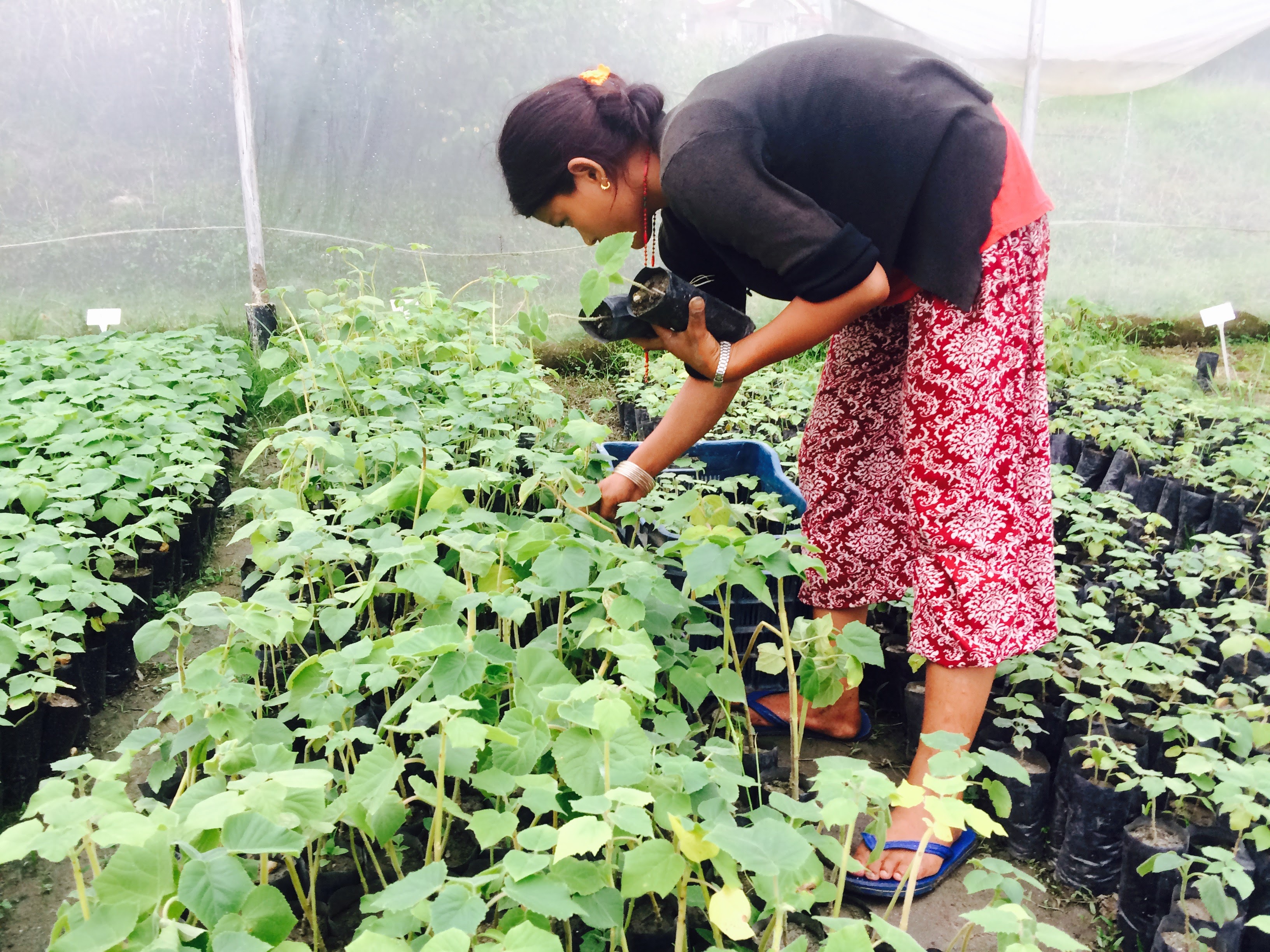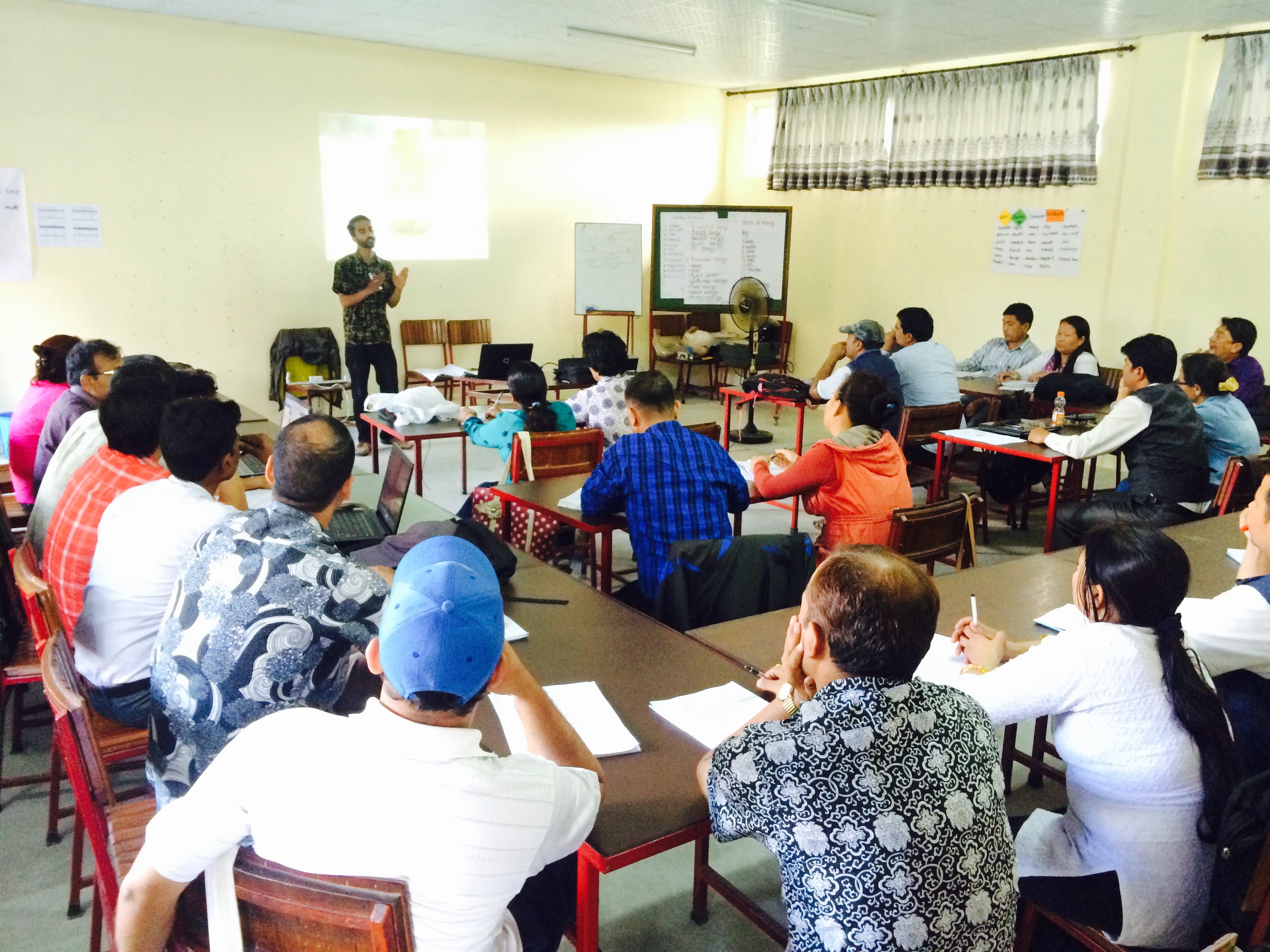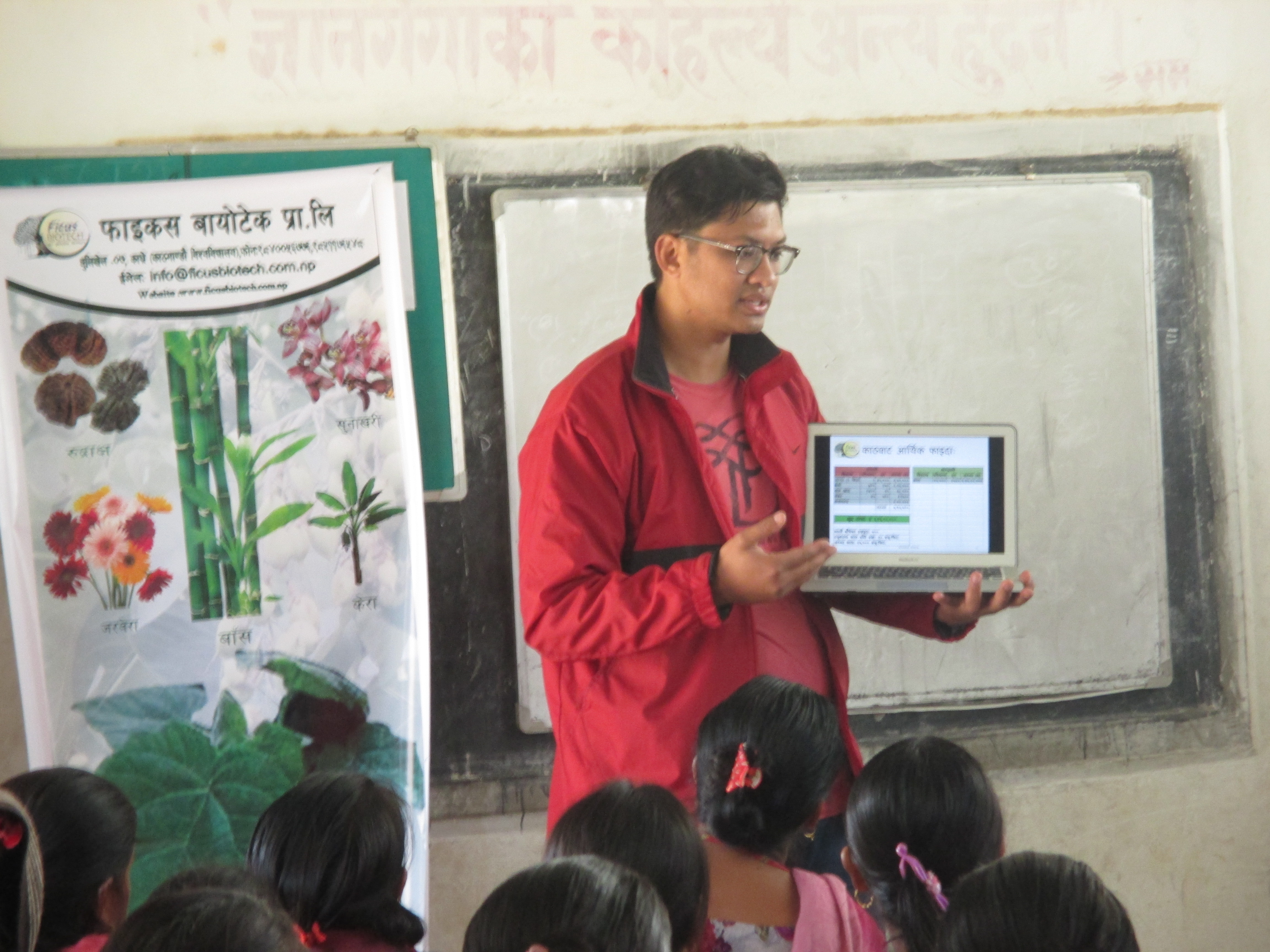Just about one and a half years ago, a triad of youths came up with a plan to start a biotech company that has now evolved to become one of the leading agro-biotech service provider in the nation.
Anuroop Manandhar, Durlav Karki and Santosh Dahal, the friends since the time of their Bachelor’s level study in Kathmandu University (KU), started the company Ficus Biotech Pvt. Ltd. that is widely contributing the development of the biotech sector in Nepal.
In a society where it’s a norm to seek for a job after completion of the study, the youths challenged the stereotype and started working on a completely new thing in the context of Nepal, with the realization that the field of biotech still lagging behind here and something needs to be done to contribute the sector.
After completing higher studies from abroad to Nepal, the group of friends planned to do something in their own motherland instead of seeking their future abroad. In a society where it’s a norm to seek for a job after completion of the study, the youths challenged the stereotype and started working on a completely new thing in the context of Nepal, with the realization that the field of biotech still lagging behind here and something needs to be done to contribute the sector.
Explaining about their work, Durlav Karki, Managing Director of the organization explains that the plant tissue culture is that technology which is mainly used for the mass production of quality plantlets and seedlings. Plant tissue culture technology, as per Karki, is similar to cloning, and useful to produce quality plantlets in a large scale.
Established in February of 2015, the company is currently focused on the plant tissue culture technology of the Paulownia, Bamboo, Banana and Gerbera Daisy. Paulownia, one of the fastest growing tree species, is a very light, softwood and can be easily crafted for furniture, musical instrument and others.
Establishing the company, they collaborated with the KU to establish a research centre within the premises of the University where the students there can also utilize the facility for their research purpose.

“Since the field of biotech is very expensive, from setting up the lab to maintaining proper environment, requiring an investment amounting to crores, we collaborated with KU to incubate our business idea, at the same time providing learning and research opportunities to the KU students along with giving them first priority in recruiting of manpower and availing with internship opportunities to them,†says Karki on their idea on collaborating with Kathmandu University. Thus the problem of investing a hefty amount while starting the biotech company was solved, he adds.
As Karki says, they are striving to set an example that good products can be made in Nepal itself by utilizing the labor and resources available here.
Into operation for just one and half years, the business has already been successful to reach and supply the plantlets to the farmers across all parts of Nepal as of now.
Into operation for just one and half years, our business has already been successful to reach and supply the plantlets to the farmers across all parts of Nepal as of now, mentions Karki about the large customer reach in such a short period of time.
“As professional/occupational agriculture is on the rising trend, biotech needs to be practiced and promoted in Nepal,†says he. “Though the rest of the world is already on that path, we have not even started in the direction yet, he adds.
As the farmers in Nepal haven’t still got quality plantlets. They had started the company so as to provide that through the tissue culture technology.
Though tissue culture is a very preliminary thing in the biotech sector, it is still unexplored in the context of Nepal.
If you want to plant 1000 banana trees in a single season, where would you go to search for it? It’s next to impossible in the present context in Nepal. The development of biotechnology is a must for the rise and development of professional farming. And, we are trying to fill up that void.
If you want to plant 1000 banana trees in a single season, where would you go to search for it? It’s next to impossible in the present context in Nepal,†he says. “Thus, it is high time we opt for biotechnology to solve the problem of lack of plantlets necessary for mass plantation of such cash crops. The development of biotechnology here is a must for the rise and development of professional farming. We are trying to fill up that void, adds Karki.
People are attracted to plant Paulownia in their unused and uncultivated land. Though it costs just 150 Rupees for a plantlet of the species, the timber of a matured tree provides you with a return of more than 50,000 Rupees.
Paulownia, the main product of the company, as Karki says, is a light-weight timber tree that matures just in the duration of 10 years, and can be used mainly for making plywood, furniture, musical instruments among others, giving heavy return. People are attracted to plant Paulownia in their unused and uncultivated land. Though it costs just 150 Rupees for a plantlet of the species, the timber of a matured tree provides you with a return of more than 50,000 Rupees, Karki says.

They also got to be part of Rockstart Impact Nepal and received necessary mentorship and guidelines to successfully run the enterprise.
As per him, though there is not much awareness of the tissue culture technology among the farmers in Nepal, people have started to prefer the plants produced with the use of the technology after getting to know about the benefits of the plantlets produced with that method.
To aware the farmers about the plant tissue culture technology and its benefits, along with engaging them in the progressive and professional farming, the organization has also conducted interactive series of programmes in various parts of the nation like Jhapa, Pokhara, Gorkha, Salyan among others. These programmes have highly assisted the farmers to technically deal with the problems they have faced so far in doing farming and dealing with the science and methodology in farming.


Started with a little amount of startup seed money, the rapid production and sales of the plantlets itself has helped the company to grow in this very short time.
Giving a message to the youths, Karki says that, they should start working instead of staying idle and making excuses on the unfavorable business environment in Nepal. “Being dedicated to one’s work is what leads to success,†he adds.
At a time when people in Nepal are leaving farming as their occupation for its low productivity and return, the team at Ficus Biotech is optimistic to contribute to the sector, providing quality plantlets to the farmers and fill the void by developing professional agricultural technology, ultimately helping increase the quantity and quality of their produce with the help of biotechnology.
At a time when people in Nepal are leaving farming as their occupation for its low productivity and return, the team at Ficus Biotech is optimistic to contribute to the sector, providing quality plantlets to the farmers and fill the void by developing professional agricultural technology, ultimately helping increase the quantity and quality of their produce with the help of biotechnology.
Presented By: Basanta Kumar Dhakal







